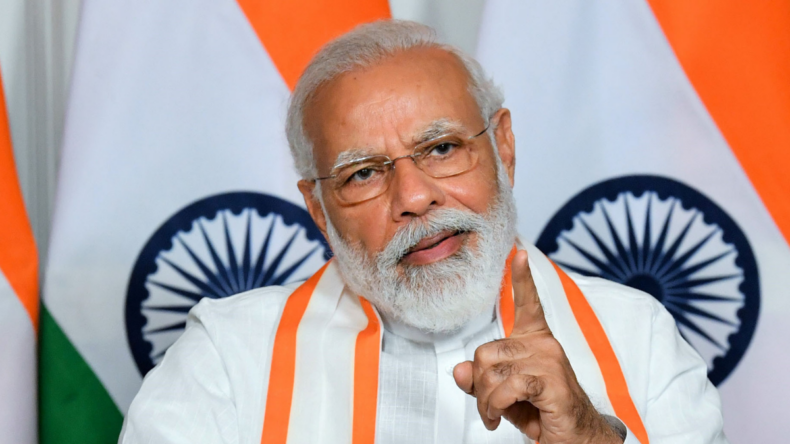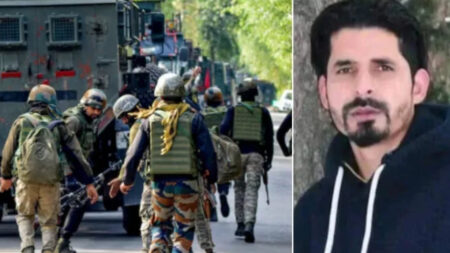Although his administration lowered excise taxes on petrol and diesel in November, PM Modi highlighted the issue of several states refusing to comply with the Centre’s proposal to reduce the Value Added Tax (VAT) on them
At a high-level meeting with Chief Ministers today, PM Modi aimed at the opposition-ruled states, requesting that the Value Added Tax (VAT) on fuel be reduced “in the spirit of cooperative federalism.”
In his meeting with chief ministers to discuss the COVID-19 situation, the Prime Minister focused a large portion of his closing remarks on gasoline prices, whose growth has been a source of public controversy and a cause of inflation.
In an apparent reference to Russia’s attack on Ukraine, he said that building cooperative federalism is vital for growing the Indian economy in a global situation touched by conflict. In addition to this, he said the country successfully battled Covid via that spirit and must now do the same for economic challenges, considering the influence of global issues such as the existing “war-like scenario.”
He urged for more vital Centre-state collaboration in economic choices. He went on to say that the supply chain has been disrupted and that issues have been increasing.
Read Also – Oil Bonds and Fuel Prices – Asiana Times
The central government slashed excise duties on gasoline and diesel by 5 and 10 percent, respectively, in November. After the Center’s decision, 25 states and union territories, the majority of which are governed by the BJP or its allies, reduced the VAT on gasoline and diesel to help customers.
“Allow me to give you an example. Last November, the Centre lowered the excise rate on gasoline and fuel to ease the burden on residents. We also asked states to lower their taxes and pass the savings on to the
people. Some states decreased taxes, but others did not provide any benefit to the people as a result. As a result, gasoline and diesel prices in these states have remained high. This is not only an injustice to the people of these states, but it also has repercussions for neighboring states, according to Prime Minister Modi.
States that have reduced and not reduced taxes
The PM said it’s inevitable for governments to lose money when they lower their taxes, but numerous states made that “good move” regardless.
“Karnataka would have received an extra 5,000 crore in income in the last six months if it hadn’t slashed taxes. Gujarat would have also collected an additional 3,500-4,000 cores”. He went on to say that states that did not lower VAT gained hundreds of crores in additional money.
“I’m not criticizing anyone; I’m simply talking,” the PM stated as he listed the states that did not lower gasoline VAT amid the sharp increases. “Maharashtra, West Bengal, Telangana, Andhra Pradesh, Tamil Nadu, Kerala, and Jharkhand, for whatever reason, refused to agree to lower gasoline VAT. The citizens are still bearing the brunt of high pricing, “He stated.
Read Also – PM Modi Will Meet With France’s Newly Elected President
The BJP-run states were the ones that lowered VAT by various margins, following the Centre’s lead. Most opposition-ruled states did not, although Delhi’s Aam Aadmi Party administration did so much later.
He directly requested the Chief Ministers to lower the state gasoline tax and pass the savings on to the people. He also mentioned that the states receive 42% of the Centre’s revenue. “In this time of global challenges, I request all states to adopt the spirit of cooperative federalism and work together as a team,” he added.













